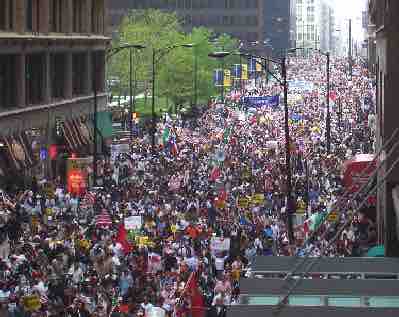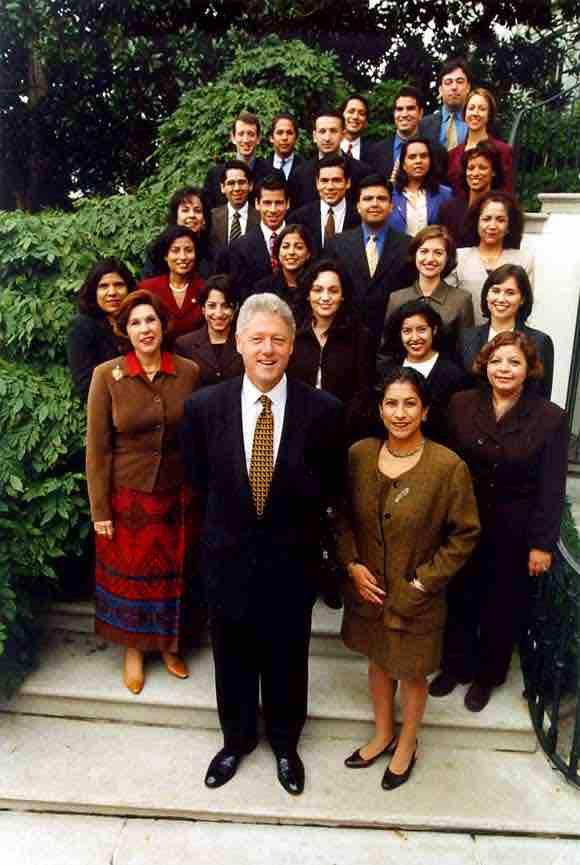The term Hispanic, as defined by the Office of Management and Budget, is used in the United States to identify people with origins in Spanish-speaking countries, like Mexico, Peru, Cuba, or Costa Rica.
Hispanic Party Affiliation
Depending on their location and background, Hispanics differ on their political views. While Hispanics have a diversity of views, they disproportionately identify themselves as Democratic and/or support Democratic candidates. Only 23% of Hispanics identify as Republicans. For example, in the 2010 midterm elections, in spite of general Republican victories, 60% of Hispanics voted Democratic, while only 38% voted Republican. In 2008, 67% of Hispanics supported Obama. In 2006, 69% of Hispanic voters supported Democratic candidates in congressional races, while only 30% supported Republican candidates.
Demographic Trends
Due to the homogeneity among Hispanic voters, they have the ability to be an influential force in American politics. This is especially true in areas with high Hispanic populations. Statistics indicate that the American Hispanic population is increasing and will continue to do so steadily over the ensuing decades of the 21st century . A 2012 study, conducted by the Center for Immigration Studies, projected that in November 2012, Hispanics would comprise 17.2% of the total U.S. population. The same study showed that, in the United States, Hispanics now constitute 15% of adults, 11.2% of adult citizens, and 8.9% of actual voters. In comparison, the same study showed that in 2012, non-Hispanic whites were expected to constitute 73.4% of the national vote. Non-Hispanic blacks were only expected to represent 12.2% of the national vote.

An Immigration Rally in Chicago, 2006
Immigration is an important issue for may Hispanic and Latino voters.
Political Differences in the Hispanic Community
Hispanics are often classified as a unitary voting bloc, but there are differences in political preferences within this community. For example, Cuban Americans and Colombian Americans tend to favor conservative political ideologies and to support the Republican Party. Mexican Americans, Puerto Rican Americans, and Dominican Americans, on the other hand, tend to favor liberal views and to support the Democratic party. That being said, because the latter groups are far more numerous (Mexican Americans account for 64% of Hispanics in the U.S.) the Democratic Party is considered to be in a far stronger position with Hispanics overall.

President Clinton's Latino Appointees, 1998
Hispanics and Latinos made political gains under the Clinton Administration. This 1998 photograph shows President Bill Clinton and his Hispanic and Latino appointees.